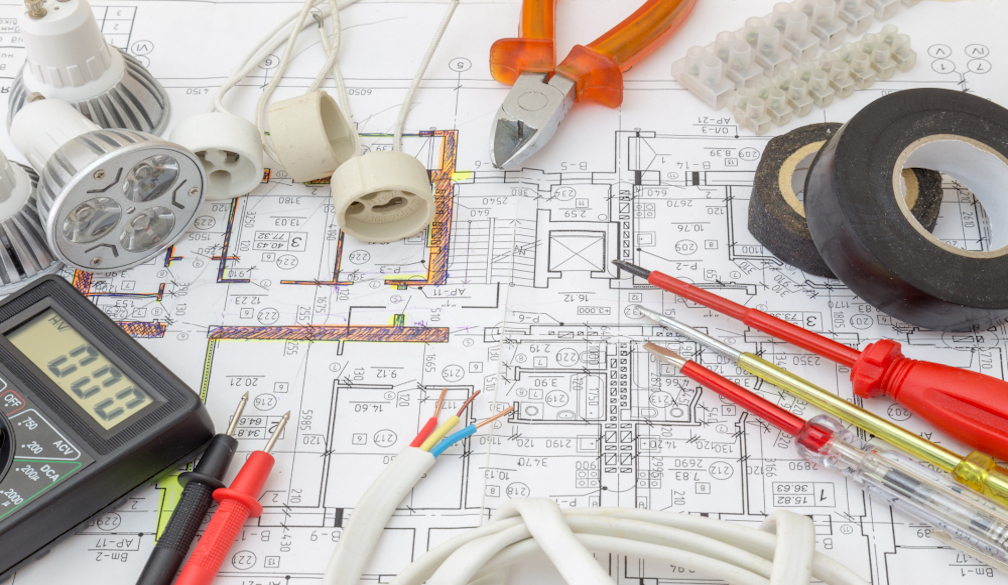10 Ways to Improve the Energy Efficiency of Your Electrical System

In today's era, with a growing emphasis on energy conservation, enhancing the energy efficiency of your electrical system holds immense significance. Not only does it contribute to environmental preservation, but it also brings tangible financial benefits. By reducing electricity bills and lessening your carbon footprint, optimising your electrical system with electrical Melbourne offers a host of advantages.
Here are ten actionable tips to assist you in this endeavour. However, it's crucial to emphasise that a qualified electrician should carry out any electrical alterations to your home to ensure safety and compliance with regulations.
Upgrade to LED Lighting:
Transitioning from traditional incandescent bulbs to LED (Light Emitting Diode) lights is an essential step in enhancing energy efficiency. LED bulbs not only consume significantly less energy but also boast a substantially longer lifespan compared to their incandescent counterparts. This switch not only reduces energy consumption but also lowers the frequency of bulb replacements, ultimately saving you money in the long run.
Install Motion Sensors or Timers:
In areas prone to unintentional lighting left on, such as hallways, bathrooms, or outdoor spaces, the installation of motion sensors or timers proves invaluable. These smart devices automatically activate lights upon detecting movement and switch them off when the space is vacant. By eliminating unnecessary energy usage, motion sensors and timers contribute to substantial energy savings over time.
Seal Air Leaks and Insulate:
Addressing air leaks and ensuring proper insulation throughout your home is fundamental to maintaining a consistent indoor temperature. By minimising heat loss in winter and preventing heat gain in summer, effective insulation and sealing reduce the strain on heating and cooling systems. This results in decreased energy consumption, improved comfort, and enhanced energy efficiency overall.
Upgrade Appliances to Energy Star-Rated Models:
When replacing outdated appliances, prioritise models certified by the Energy Rating Label endorsed by the Australian Government. These appliances adhere to stringent energy efficiency standards, significantly reducing energy consumption compared to conventional models. Investing in energy-efficient appliances not only lowers your utility bills but also contributes to environmental preservation in Australia.
Utilise Power Strips and Unplug Unused Devices:
Combat standby power consumption by utilising power strips for clusters of electronic devices and unplugging them when not in use. Many devices continue to draw power even when turned off but remain plugged in, contributing to unnecessary energy wastage. By implementing this simple practice, you can mitigate standby power consumption and further optimise energy efficiency.
Install Programmable Thermostats:
Take control of your heating and cooling systems with programmable thermostats, enabling you to establish tailored temperature schedules aligned with your daily routine. By automatically adjusting temperatures during periods of inactivity or absence, programmable thermostats optimise energy usage and yield substantial savings on heating and cooling costs.
Regular Maintenance of HVAC Systems:
Ensure optimal performance and efficiency of your heating, ventilation, and air conditioning (HVAC) systems through regular maintenance. Simple tasks such as changing air filters, cleaning coils, and scheduling professional tune-ups not only improve energy efficiency but also extend the lifespan of HVAC equipment, ultimately reducing operating costs and enhancing overall comfort.
Consider Solar Panels or Renewable Energy Sources:
Embrace sustainable energy solutions like solar panels or other renewable energy sources to reduce reliance on conventional utility-generated electricity. By harnessing clean, renewable energy, you can slash electricity bills, minimise environmental impact, and contribute to a greener future.
Upgrade Electrical Wiring and Components:
Eliminate energy loss and inefficiencies associated with outdated electrical wiring and components by upgrading to modern, energy-efficient alternatives. From wiring and circuit breakers to outlets and switches, investing in energy-efficient electrical infrastructure enhances overall system performance, safety, and efficiency.
Educate Yourself and Practice Energy Conservation:
Cultivate energy-conscious habits by educating yourself on energy-saving practices and implementing them in your daily life. Simple actions such as turning off lights when leaving a room, optimising natural light, and using energy-efficient appliances judiciously can collectively make a significant difference in reducing energy consumption and enhancing the efficiency of your electrical system.
Remember, while these tips can help improve the energy efficiency of your electrical system, it's essential to consult a qualified electrician for any electrical alterations or installations to ensure safety and compliance with regulations.
Moreover, a qualified electrician can provide expert guidance tailored to your specific needs and circumstances, ensuring that any upgrades or modifications to your electrical system are carried out safely and effectively.
Furthermore, consulting with an electrician allows for a thorough assessment of your home's electrical infrastructure, identifying potential areas for improvement and recommending tailored solutions to optimise energy efficiency.
Whether it's assessing the feasibility of incorporating renewable energy sources like solar panels, conducting a comprehensive energy audit to identify energy-saving opportunities, or upgrading outdated electrical components for improved efficiency and safety, a qualified electrician plays a crucial role in achieving your energy efficiency goals.
Additionally, collaborating with an electrician fosters a proactive approach to energy management, empowering you to make informed decisions that align with your energy conservation objectives and long-term sustainability goals.
In conclusion, while implementing energy-saving measures outlined in this guide can yield significant benefits in terms of energy efficiency and cost savings, partnering with a qualified electrician ensures that these initiatives are executed proficiently and in compliance with relevant regulations.
By working together, you can maximise the efficiency, safety, and sustainability of your electrical system, ultimately contributing to a greener and more energy-efficient future for generations to come.











